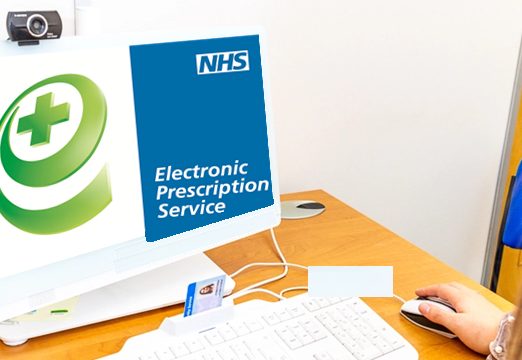The NHS (Pharmaceutical and Local Pharmaceutical Services) Regulations 2013 and subsequent amendments
Published on: 11th July 2013 | Updated on: 16th May 2024
The regulations came into effect on 1 April 2013, and replaced the 2012 regulations. They reflect the new NHS architecture, in which NHS England (the NHS Commissioning Board, NHSCB) is responsible for maintaining pharmaceutical lists, and the Health and Wellbeing Boards (HWB) are responsible for developing and publishing the Pharmaceutical Needs Assessments, which are used in the determination of routine applications for new pharmacies.
The National Health Service (Pharmaceutical and Local Pharmaceutical Services) Regulations 2013
The authoritative source is the www.legislation.gov.uk website. Whenever it is necessary to identify what the law requires, the original statutory instrument must be used, then check for subsequent amendment in any amending regulations.
Click on a heading below for more information.
The National Health Service (Pharmaceutical and Local Pharmaceutical Services) (Amendments and Transitional Provision) Regulations 2014
On 01 April 2014, amendments to the 2013 Regulations came into effect. The full extent and nature of these amendments can be found here.
Unforeseen benefits applications
Regulation 18 of the 2013 Regulations – which relate to pharmaceutical list applications where the applicant is seeking to offer what were unforeseen benefits at the time the relevant PNA was produced is amended. The 2013 Regulations identify three desirable characteristics of such applications and the amendment means that NHS England needs only to have particular regard to the desirability of one of these three when considering whether or not to grant an unforeseen benefits application.
Relocation applications
Before when an applicant made an application under Regulation 24 (no significant change relocation applications) one of the requirements was for NHS England to positively need to satisfy itself that granting the application would not cause significant detriment to proper planning. This is amended so that the requirement now is that NHS England is not of the opinion that granting the application would cause significant detriment to proper planning – a far easier requirement to satisfy.
Distance selling relocation applications
The threshold criteria for distance selling relocation application was amended so that, if the relocation is of distance selling premises (e.g. mail order, internet pharmacies), NHS England must be satisfied that the general conditions that apply for the granting of new distance selling premises applications also apply to the grant of applications for relocations of distance selling premises that do not result in significant change to pharmaceutical services provision locally (regulation 8(c)).
Change of ownership applications
The threshold for change of ownership applications are another type of “excepted application”, and regulation 9(b) amends the threshold criteria in regulation 26 of the 2013 Regulations for granting these applications (which may sometimes be combined with a relocation application) so that if the application relates to distance selling premises, the NHS England must be satisfied that the general conditions that apply to the grant of new distance selling premises applications also apply to the grant of change of ownership applications for distance selling premises.
The changes in regulation 8(c) and 9(b) are also reflected in a change to regulation 64 of the 2013 Regulations, which sets the conditions of entry in pharmaceutical lists for distance selling premises. The change is to make sure that, going forward, the specific conditions of entry that apply to distance selling premises apply to all distance selling premises, not simply those distance selling premises that have resulted from the grant of an application pursuant regulation 25 of the 2013 Regulations and the provisions that preceded it (regulation 15). It is possible, however, that prior to 1st April 2014, distance selling premises may have relocated, or been given permission to relocate, under the previous arrangements to the same site as a provider of primary medical services with a patient list. A transitional provision is included in these Regulations so that, if that has indeed happened, the term of service that would prevent the distance selling premises being on the same site as a provider of primary medical services with a patient list is disapplied (regulation 16).
Same or existing premises
Regulation 31 of the 2013 Regulations provides circumstances in which NHS England must refuse a market entry application – if the proposed premises were part of the same site as the premises of an existing provider of pharmaceutical services. This now applies to all types of pharmaceutical list applications.
Best estimate applications
Sometimes applications for new NHS chemist premises include a “best estimate” of where the new premises are to be located, rather than an exact location, and in some cases where an exact location is given, change of that exact location is permissible after the application has been granted.
Paragraphs 31 and 32 of Schedule 2 to the 2013 Regulations were amended to provide that, when an exact location, or a different exact location, is given after an application has been granted, that location also cannot be part of the same site as the premises of an existing provider of pharmaceutical services.
LPS designation
Regulation 32 of the 2013 Regulations is amended so that a designation of an area or premises under Part 13 of the Regulations – which is a potential preliminary for a tendering exercise for a contract to provide local pharmaceutical services – now acts as a ground for deferring all types of routine applications in the area, or for the premises, covered by the designation – not just some types of routine applications.
Market entry – fitness to practise
Market entry applications may be deferred or refused on some specified grounds relating to the fitness to practise of the potential provider of pharmaceutical services to be a provider of such services. Previously, the refusal and deferral provisions applied only to potential providers who were individuals or bodies corporate.
Now Regulations 33 and 34 of the 2013 Regulations mean that these refusal and deferral provisions now also apply to the partners in applications from partnerships.
Rural
Regulation 40 of the 2013 Regulations includes a rule requiring the refusal of applications for new pharmacies in certain rural areas for a period of five years, where dispensing services are provided in the relevant location by dispensing doctors, if an application for a pharmacy within 1.6 kilometres of the proposed new pharmacy has been refused in the previous five years.
It is amended to prevent a new five year period being triggered if it is satisfied that the pharmacy application was motivated wholly or partly by a desire for the application to be refused, thus triggering a five year bar on further applications.
Appliance contractors
Providers of pharmaceutical services that provide certain types of specialist appliances may provide telephone care lines for users of the appliances during their normal opening hours. Schedules 4 and 5 of the 2013 Regulations are amended to provide that those providers must ensure that, during out of hour periods, if advice is not available to those users via those telephone lines, contact details are given via those telephone lines for alternative sources of NHS advice.
The National Health Service (Pharmaceutical and Local Pharmaceutical Services) (Amendments and Transitional Provision) Regulations 2015
On 01 March 2015, amendments to the 2013 Regulations came into effect. The full extent and nature of these amendments can be found here.
Distance selling pharmacies
NHS England holds lists, known as pharmaceutical lists, of approved providers of pharmaceutical services. These lists are kept by reference to local authority areas. An amendment is made to regulation 25 of the 2013 Regulations to make it clear that an applicant for new distance selling premises who is an existing pharmacy but who is seeking replacement premises in the same local authority area is subject to the requirements in respect of distance selling premises applications in regulation 25.
Local pharmaceutical services – designation
Under regulation 99 of the 2013 Regulations, NHS England may designate premises or a neighbourhood for the purpose of giving priority in that place to the development of schemes for the provision of local pharmaceutical services – a form of contractual arrangement for the provision of pharmaceutical services that is separate from the pharmaceutical list system.
Before NHS England was required to refuse pharmaceutical list applications that related to a neighbourhood or premises covered by such a designation. This is now amended so that NHS England may defer such an application.
Local pharmaceutical services – choice to be a “health service body”
A local pharmaceutical services contractor may choose to be a “health service body” and so for their contract to be an NHS contract – and if they do, they may also choose to cease to be such a body and so for their contract to cease to be an NHS contract. Where a local pharmaceutical services contractor does choose to no longer be a health service body, the amendments provide that all disputes relating to the period when their contract was an NHS contract are to be dealt with via the NHS dispute resolution procedure.
The exception is where a dispute was already the subject of legal proceedings before these Regulations came into force e.g. 1 March 2015, that dispute is to be determined in accordance with the relevant legislation as it applied at that time. Before these Regulations came into force, disputes under a local pharmaceutical services contract that was not an NHS contract, but which related to a time when the contact was an NHS contract, could only be dealt with via the NHS dispute resolution procedure (if they had not been referred to that procedure when the contract was an NHS contract) with the contractor’s consent.
Market entry – fitness to practise
Applicants for inclusion in a pharmaceutical list may be granted subject to a condition that relates to the applicant’s fitness to provide pharmaceutical services. If that condition is appealed by the applicant, and the appeal is lost, the application may lapse if a required notification is not given by the applicant. In cases where the applicant makes a subsequent pharmaceutical list application, the application procedures are amended so that the applicant must make reference in the new application to the earlier lapsed application.
The pharmaceutical list applications procedures are also amended so that in all cases where the applicant is seeking the listing of premises that are the same as, or in close proximity to, premises that are already listed, the applicant must explain why they believe the application should not be refused under regulation 31 of the 2013 Regulations, which prevents the granting of applications where the proposed and existing premises should be treated as the same site.
Terms of service – repeat dispensing
Pharmacy required to give appropriate advice about the benefits of repeat dispensing to specified categories of patients.
Terms of service – clinical audit
Pharmacy contractors required to undertake a clinical audit of their choice, and either a clinical or policy based audit as specified by NHS England (regulation 8).
The National Health Service (Amendments to Primary Care Terms of Service relating to the Electronic Prescription Service) Regulations 2015
On 01 July 2015, amendments to the 2013 Regulations came into effect. The full extent and nature of these amendments can be found here.
Controlled drugs dispensing via the Electronic Prescription Service (EPS)
Previously, pharmacy contractors and local pharmaceutical services contractors were only allowed to dispense electronic prescriptions for controlled drugs if these were received via EPS and related to drugs listed in Schedule 4 or 5 to the Misuse of Drugs Regulations 2001.
Community pharmacy may now also dispense electronic prescriptions received via EPS for controlled drugs listed in Schedule 2 or 3 to the Misuse of Drugs Regulations 2001. However, the systems suppliers for prescribers and pharmacies will need to amend the IT systems to allow this to take place.
The National Health Service (Pharmaceutical and Local Pharmaceutical Services) (Amendment) Regulations 2016
On 01 April 2016, amendments to the 2013 Regulations came into effect. The full extent and nature of these amendments can be found here.
Summary Care Record (SCR)
From 1 April 2016, the terms of service will require NHS pharmacists who have access to the SCR to access this if they consider, in their clinical judgment that it is in the best interests of the patient to do so.
If an NHS pharmacist does access the SCR then this must be in accordance with The NHS Care Record Guarantee guidance available here.
The National Health Service (Pharmaceutical and Local Pharmaceutical Services) (Amendment) Regulations 2016
On 1 July 2016, amendments to the 2013 Regulations came into effect. The full extent and nature of these amendments can be found here.
Exemption from prescription charges – anti fraud measures
On 1 July 2016, NHS pharmacists and pharmacy staff must inform persons presenting a prescription on which an exemption declaration has been made without producing evidence of entitlement to exemption (where evidence is required but not provided) that NHS checks are routinely undertaken to verify that persons are exempt from payment of NHS prescription charges as part of the relevant arrangements for preventing or detecting fraud or error.
Community Pharmacy England have produced a Briefing which aims to remind community pharmacy teams that this change will be taking place and includes our key things to consider to make compliance with this new requirement of the Terms of Service a matter of routine.
The National Health Service (Pharmaceutical Services, Charges and Prescribing) (Amendment) Regulations 2016
On 5 December 2016, amendments to the 2013 Regulations come into effect. The full extent and nature of these amendments can be found here.
Pharmacy consolidations (mergers)
NHS pharmacy businesses may apply to consolidate the services provided on two or more sites onto a single site. Such consolidations could require a change in the ownership of one of the businesses concerned. A process to facilitate such consolidations will be in place.
Applications to consolidate will be dealt with as “excepted applications” under the 2013 Regulations, which means in general terms they will not be assessed against the pharmaceutical needs assessment (PNA). Instead, consolidation applications will follow a simpler procedure, the key to which is whether or not a gap in pharmaceutical service provision would be created by the consolidation. Some provision is also made in respect of continuity of services – for example, if NHS England intends to commission from the applicant “enhanced services” (additional pharmaceutical services, such as minor ailments schemes, that are commissioned locally by NHS England) that have been provided at or from the closing premises, the applicant is required to provide undertakings to continue to provide those services following consolidation.
If NHS England is satisfied that the consolidation would create a gap in pharmaceutical services provision, it must refuse the application.
The opinion of the Health & Wellbeing Board (HWB) on whether or not a gap in pharmaceutical service provision would be created by the consolidation must be given when the application is notified locally and representations sought. If the application is granted and pharmacy premises are removed from the relevant pharmaceutical list, if the HWB does not consider that a gap in service provision is created as a consequence, it must publish a supplementary statement published alongside its PNA recording its view.
If NHS England grants the application, it must then refuse any further “unforeseen benefits applications” seeking inclusion in the pharmaceutical list, if the applicant is seeking to rely on the consolidation as a reason for saying there is now a gap in provision, at least until the next revision of the PNA.
Supplementary prescribers
There are provisions for the prescribing and dispensing, as part of NHS primary care services of prescriptions written by therapeutic radiographer independent prescribers and dietitians who are entitled to prescribe as supplementary prescribers. These changes allow pharmacy contractors to dispense against NHS prescriptions issued by these new types of prescriber.
Emergency supply and the NHS prescription charge
NHS pharmacy contractors and LPS contractors who undertake emergency supplies of medicines at the request of a patient in accordance with the Urgent Medicine Supply Service are permitted to charge the NHS prescription charge.
The terms of service
NHS pharmacy contractors who have such emergency supply arrangements are not obliged to publicise them as part of their clinical governance programme. Clinical governance programmes are not generally required terms of local pharmaceutical services contracts.
The National Health Service (Pharmaceutical Services, Charges and Prescribing) (Amendment) Regulations 2018
On 26 November 2018, amendments to the 2013 Regulations come into effect. The full extent and nature of these amendments can be found here.
EPS Phase 4
The legislative framework for EPS Phase 4 is put in place which will allow patients to have an EPS prescription dispensed by a pharmacy which is not their nominated pharmacy by presenting an EPS token with an appropriate barcode. Prescribers will not routinely provide patients with an EPS token; these will only be required where a patient has not nominated a pharmacy or they are planning to visit a pharmacy other than their usual one (e.g. if going on holiday).
NHS prescription charge & Real-Time Exemption-Checking (RTEC)
The electronic message (rather than the dispensing token) will become the legal document against which the NHS prescription charge is recovered from community pharmacies and RTEC will be enabled.
The terms of service
NHS England is required to make reasonable efforts to communicate with a community pharmacy contractor with a view to establishing whether there was a ‘good cause’ for a failure to open during core hours before issuing a breach notice. NHS England may also rescind a remedial notice or breach notice at any time.
The rules on making representations at oral appeal hearings of market entry applications are simplified so that it is no longer necessary for certain third parties to indicate, when they make their written representations, that they also wish to make oral representations.
GDPR
Provision is made for the use of relevant information by NHS service providers, including contractors, and others processing data on their behalf, including Community Pharmacy England.
The National Health Service (Amendments Relating to Serious Shortage Protocols) Regulations 2019
On 1st July 2019, amendments to the 2013 Regulations come into effect. The full extent and nature of these amendments can be found here.
The National Health Service (Amendments Relating to the provision of Primary Care Services During a pandemic etc) Regulations 2020
On 26th march 2020, amendments to the 2013 Regulations come into effect. The full extent and nature of these amendments can be found here
The National Health Service (Coronavirus) (Charges and Further amendments relating to the provision of primary care services during a pandemic etc) Regulations 2020
On 20th August 2020, amendments to the 2013 Regulations come into effect. The full extent and nature of these amendments can be found here
The National Health Service (Charges and Pharmaceutical and Local Pharmaceutical Services) (Amendment) Regulations 2020
On 16th October 2020, amendments to the 2013 Regulations come into effect. The full extent and nature of these amendments can be found here.
Read Community Pharmacy England’S changes to the Terms of service 2020 Regs reminders for a summary of these amendments
The National Health Service (Charges and Pharmaceutical and Local Pharmaceutical Services) (Coronavirus) (Amendment) Regulations 2021
On 19th February 2021, amendments to the 2013 Regulations come into effect. The full extent and nature of these amendments can be found here.
The National Health Service (Charges, Primary Medical Services and Pharmaceutical and Local Pharmaceutical Services) (Coronavirus) (Further Amendments) Regulations 2021
On 24th November 2021, amendments to the 2013 Regulations come into effect. The full extent and nature of these amendments can be found here.
The new type of Enhanced service is the national Enhanced Service (NES): where NHS England and NHS Improvement (NHSE&I) commissions an Enhanced service with a service specification that sets standard conditions nationally. Community Pharmacy England will be the body consulted on NESs, rather than one or more Local Pharmaceutical Committees (LPCs). In many ways such a service is already in place with the coronavirus vaccination Local Enhanced Services, so the regulatory changes provide a better structure for what is already happening.
Other amendments include:
- Contractors’ Terms of Service have been amended to allow NHSE&I to introduce a pandemic response programme, by which contractors are required to have various premises and other arrangements for responding to a pandemic (agreed as part of Year 3 negotiations).
- An alternative route to supply pandemic treatments, via a listed prescription items voucher (LPIV), will be available. This is a further option for the community pharmacy supply of treatments or medicines during or in anticipation of pandemic disease.
- The publication date of the revised Pharmaceutical Needs Assessment (PNA), 1 October 2022, is now included in the regulations.
- A new market entry regulation 21A is introduced and provides that NHSE&I must refuse certain routine applications for additional opening hours, if satisfied that granting them would result in an undesirable increase in the availability of essential services in the Health and Wellbeing Board (HWB) (agreed as part of Year 3 negotiations).
More information is available here: Community Pharmacy England Briefing 050/21: Regulatory amendments in late 2021/early 2022
The National Health Service (Pharmaceutical and Local Pharmaceutical Services) (Amendment) Regulations 2023
On 27th April 2023, the Department of Health and Social Care (DHSC) introduced regulatory changes in response to increased temporary closures (temporary suspensions in the provision of pharmaceutical services) of pharmacies in England and related pressures. The changes are contained within The National Health Service (Pharmaceutical and Local Pharmaceutical Services) (Amendment) Regulations 2023 and add to and amend the
NHS (Pharmaceutical and Local Pharmaceutical Services) Regulations 2013 (PLPS regulations).
The regulatory changes take effect on 25th May 2023, except for a new requirement for a business continuity plan dealing with temporary closures (suspensions), which takes effect on 31st July 2023.
Outline of the regulatory changes
The following new Terms of Service are introduced:
- a notification procedure for introducing or changing rest breaks, by changing core opening hours;
- a requirement to have a business continuity plan dealing with temporary closures and to action it in the
event of a temporary closure (suspension); - provision for local hours plans to be agreed by the local Integrated Care Board (ICB) with temporarily
reduced opening hours for participating pharmacies within the area of the plan; - a ‘notification’ procedure for 100-hour pharmacies to reduce their total weekly hours to no less than 72
hours, subject to various requirements; and - other regulatory amendments, including changes to fitness information and the procedures for applying to
change core opening hours and notifying changes of supplementary opening hours.
Further information can be found on the PLPS May 2023 page and the Community Pharmacy England Briefing 012/23: DHSC’s changes to the Pharmaceutical Regulations.
The Secretary of State must carry out reviews of the Regulations, set out the conclusions of each review in a report; and publish each report.
On 29 March 2018, the first report was published following a post implementation review of the NHS (Pharmaceutical and Local Pharmaceutical Services) 2013 Regulations.
Each subsequent report must be published before the end of the period of five years beginning on the day on which the previous report was published – the next report is due to be published by the end of March 2023.
Each report must in particular–
(a) set out the objectives intended to be achieved by the Regulations;
(b) assess the extent to which those objectives have been achieved;
(c) assess whether those objectives remain appropriate; and
(d) if those objectives remain appropriate, assess the extent to which they could be achieved in another way which involves less onerous regulatory provision.
The Secretary of State Directions (the Directions) provide the regulatory framework for Advanced and Enhanced Services.
The Pharmaceutical Services (Advanced and Enhanced Services) (England) Directions 2013
The Pharmaceutical Services (Advanced and Enhanced Services) (England) (Amendment) Directions 2013
The Pharmaceutical Services (Advanced and Enhanced Services) (England) (Amendment) Directions 2014
The Pharmaceutical Services (Advanced and Enhanced Services) (England) (Amendment) Directions 2015
The Pharmaceutical Services (Advanced and Enhanced Services) (England) (Amendment) Directions 2016
The Pharmaceutical Services (Advanced and Enhanced Services) (England) (Amendment) Directions 2017
The Pharmaceutical Services (Advanced and Enhanced Services) (England) (Amendment) Directions 2018
The Pharmaceutical Services (Advanced and Enhanced Services) (England) (Amendment) Directions 2019
The Pharmaceutical Services (Advanced and Enhanced) (England) (Amendment) (No 3) Directions 2019
The Pharmaceutical Services (Advanced and Enhanced Services) (England) (Amendment) Directions 2020
The Pharmaceutical Services (Advanced and Enhanced Services) (England) (Amendment) Directions 2021
The Pharmaceutical Services (Smoking Cessation Service) (England) Directions 2022
The Pharmaceutical Services (Advanced and Enhanced Services) (England) (Amendment) Directions 2022
The Pharmaceutical Services (Advanced and Enhanced Services) (Amendment) (England) Directions 2023
To help pharmacy contractors, Community Pharmacy England produced and maintains a consolidation of the Directions in a single document which should not to be taken as determinative or legally authoritative but is provided for information purposes.
Advanced and Enhanced Directions consolidation
For more information on this topic please email regulations.team@cpe.org.uk













